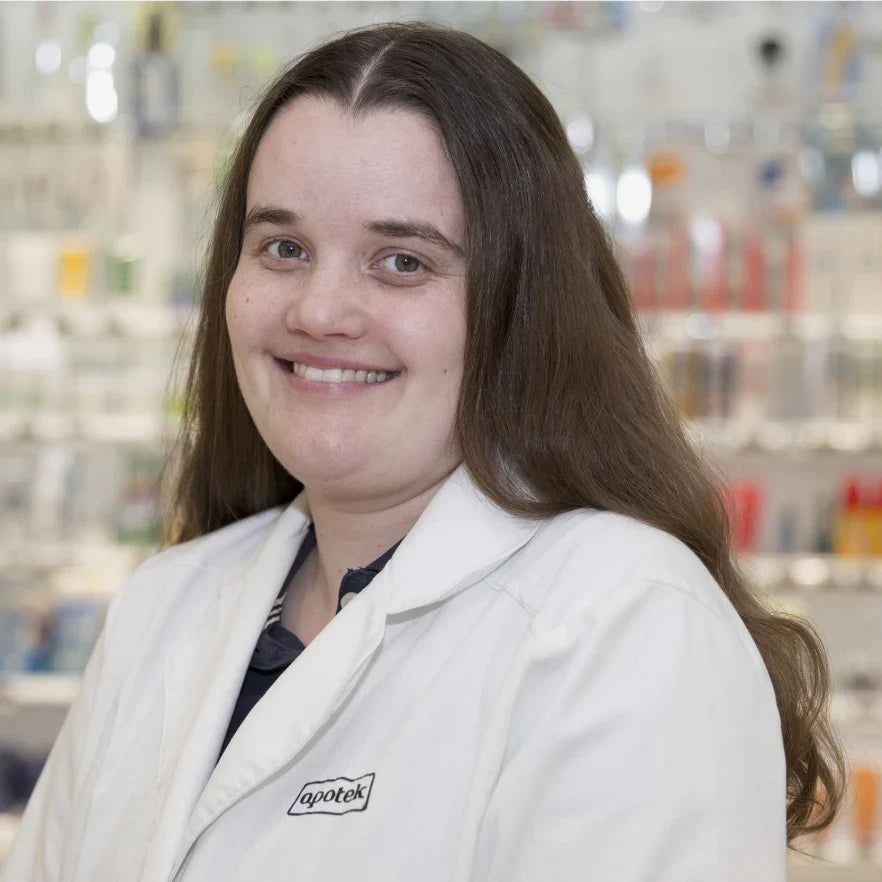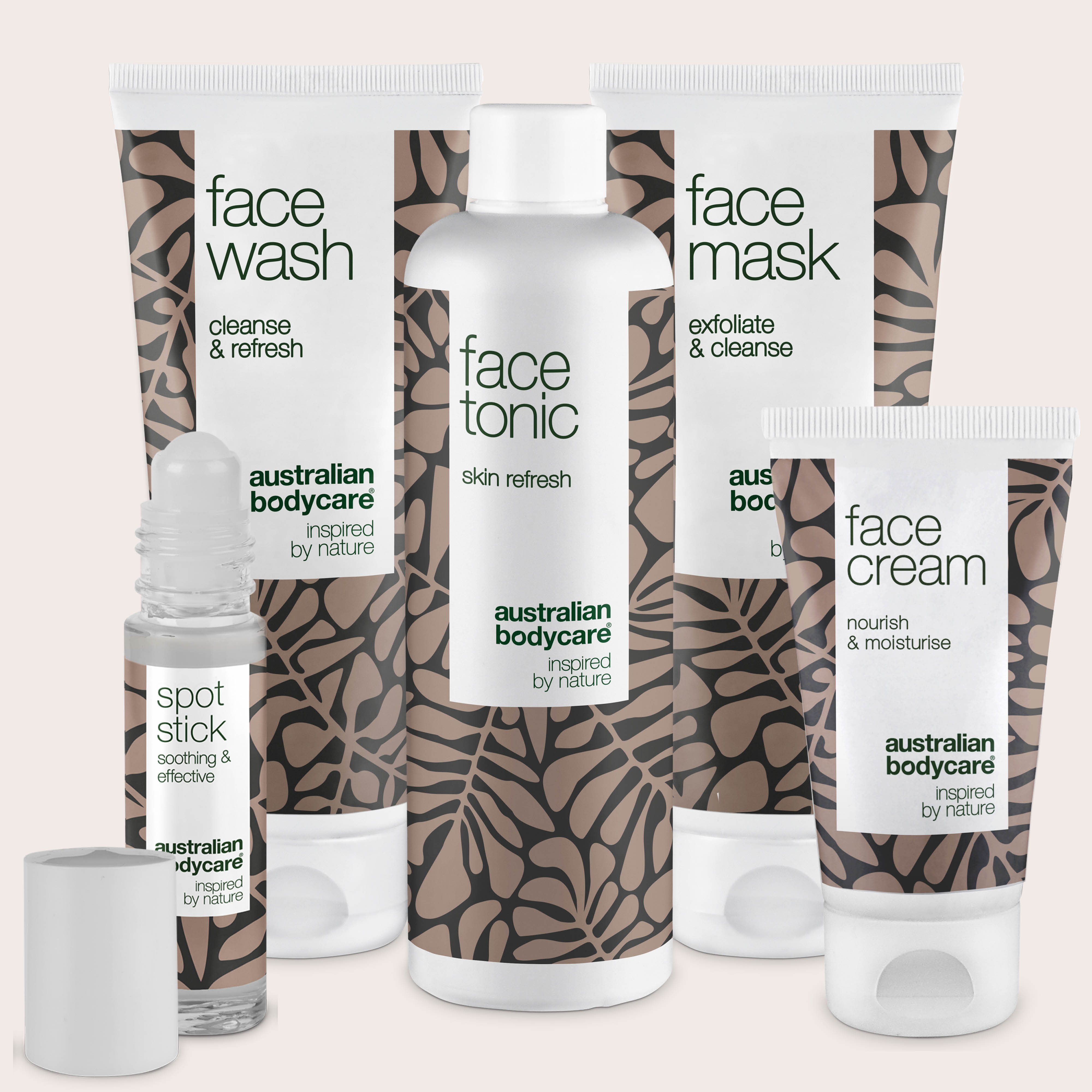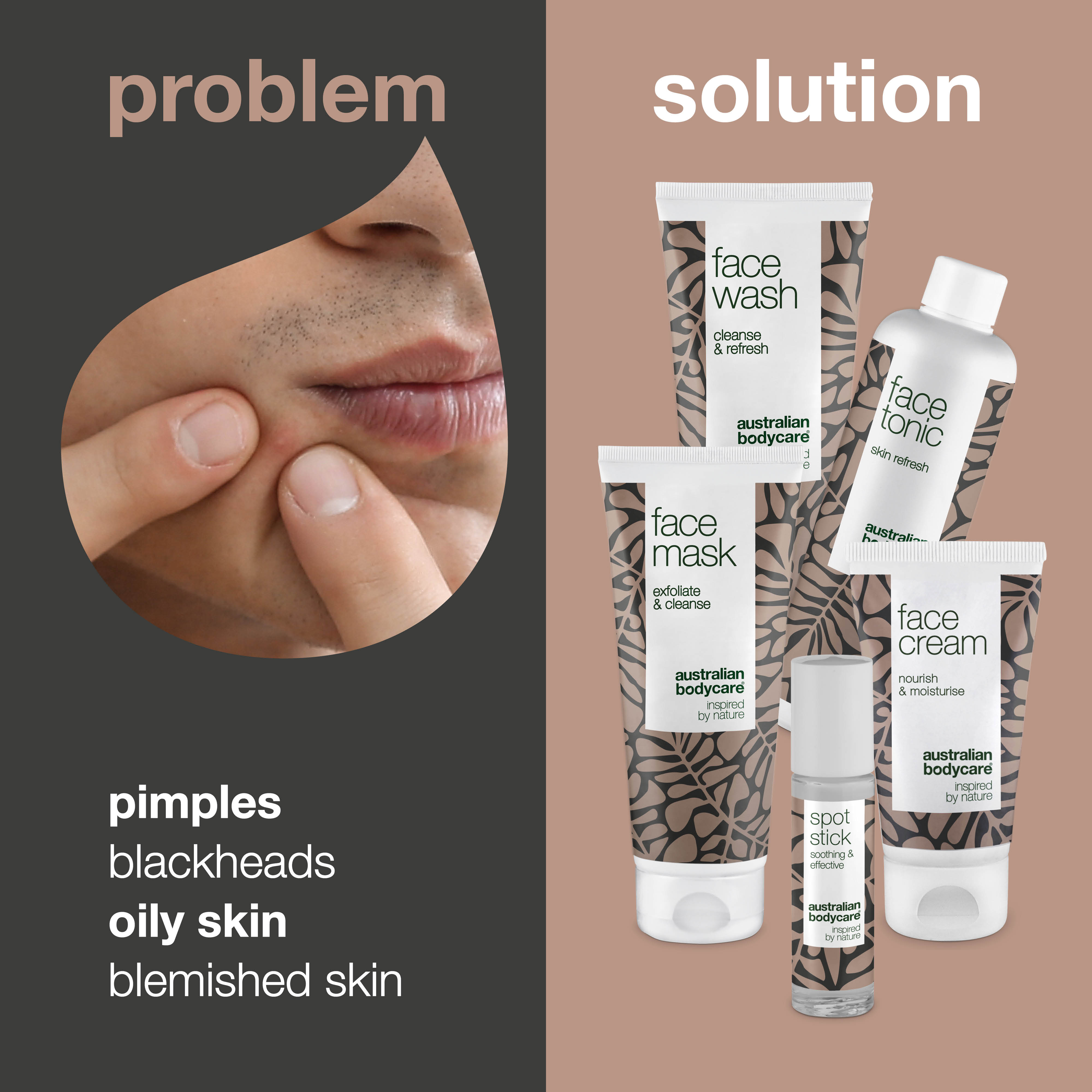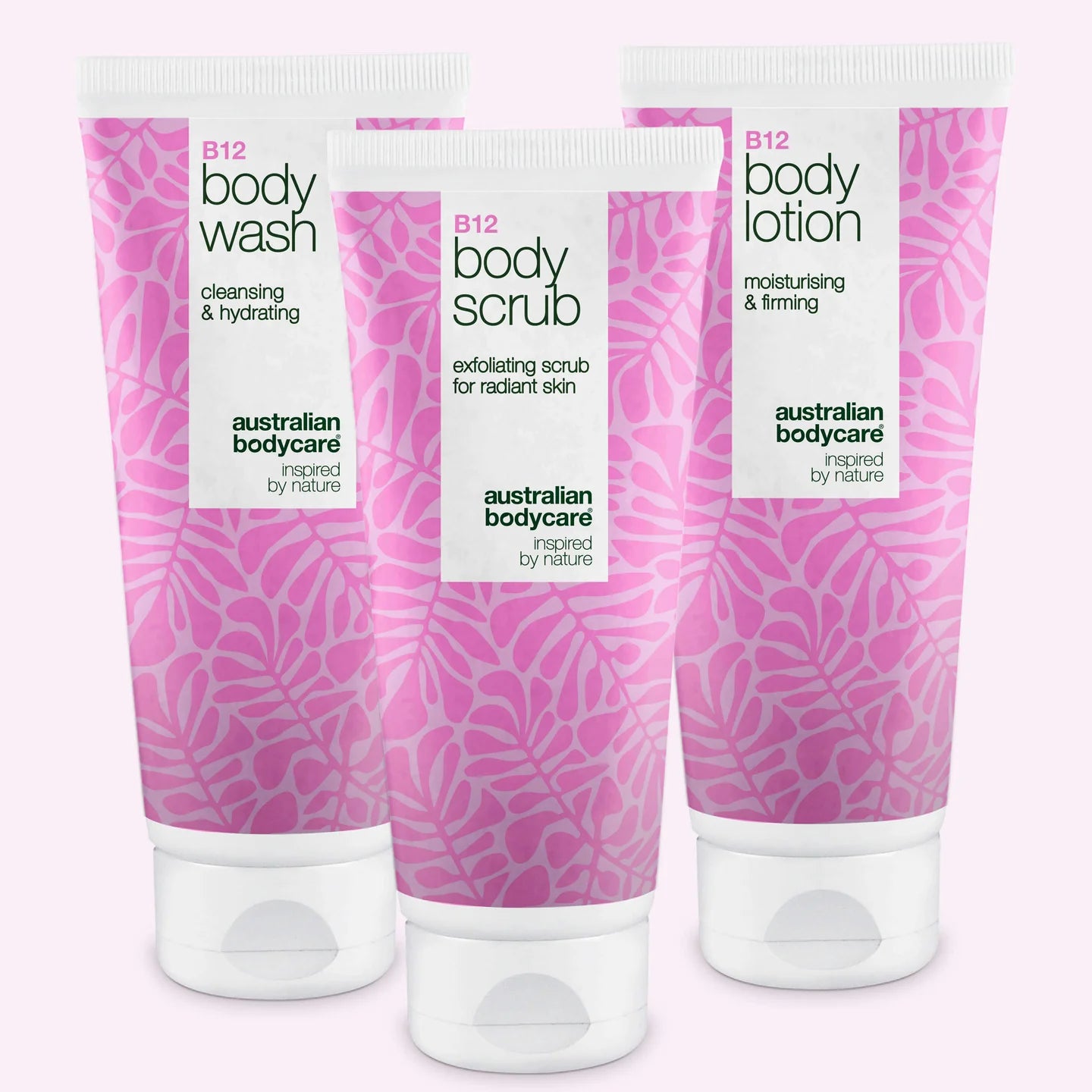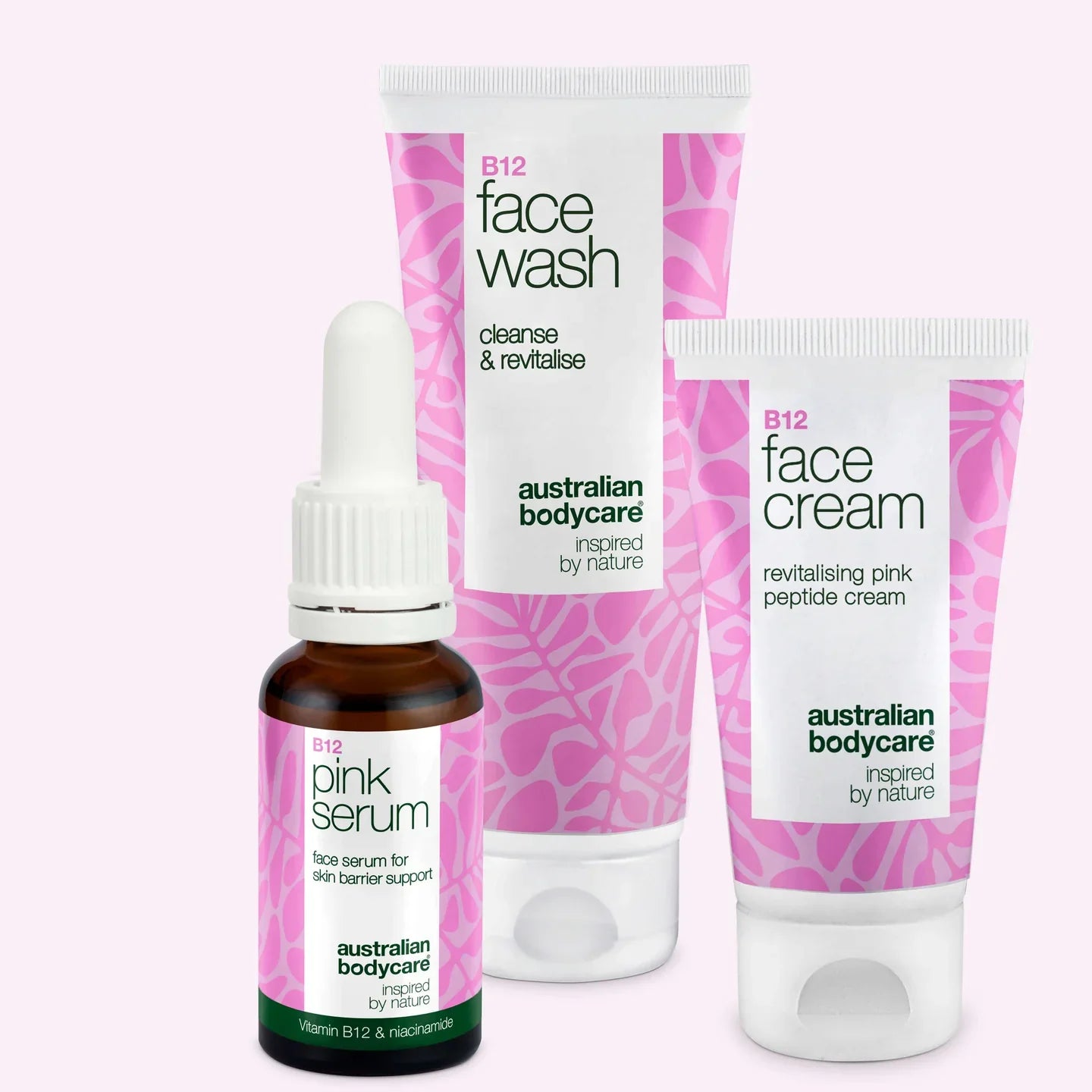Pimples on the face - How to reduce and minimise pimples
Pimples on the face are a major nuisance. Anyone who suffers from acne knows this. And that's why people will go to great lengths to get rid of them. Here are some tips on what you can do to prevent and treat pimples yourself.
Go straight to: How to treat pimples on your face
Table of contents
Pimples on the face - what can you do about it?
» Find the popular products here
Pimples are hard to hide - especially when they are on your face. That's why having pimples on the face is particularly annoying and uncomfortable. It can easily affect you psychologically and may cause you to avoid certain social situations.
This is such a shame, which is why you have every reason to seek help for your pimples. Fortunately, there is also a lot you can do yourself to both fight and prevent pimples on your face - and on the rest of your body for that matter, if you also have problems with pimples there.
This is how you can treat pimples on the face
Pimples don't just disappear on their own overnight. It takes effort if you want to get rid of them. You can, of course, sit down and wait for them to disappear with age (and for most people, this happens after their teens). But if you want to get rid of pimples before then - or if you're one of the unlucky ones who still suffer from pimples even though you're far from being a teenager anymore - it requires a daily effort with the right products at hand. But if you're up for it, there's also a good chance you'll have better and cleaner skin.
Try the skin test - Get personalised product recommendations tailored to your skin
Why do you get pimples?
Pimples are a hormonal condition. This is why it is precisely during puberty that most people get pimples. When the body produces extra hormones, extra sebum is also produced in the hair follicle or sebaceous gland, which then becomes clogged because the sebum cannot reach the surface of the skin and get out.
If bacteria then get into the sebaceous gland or hair follicle - and this can be hard to avoid - inflammation will develop and you will have a pimple.
Treatment of pimples - step by step
When you see a large pimple on your face, it can be very tempting to squeeze it. It's not the best thing to do, as you risk damaging the skin and leaving scars. But if you can't resist the temptation, do it gently and use a clean piece of paper to avoid introducing more bacteria to the wound.
ALSO READ: 10 tips for blemished facial skin
The best treatment for acne is a little more long-term. It's all about keeping the skin clean. Dead skin cells, excess oil, daily dirt and pollution, bacteria, any make-up and anything else that can make the skin oily and contaminated must be removed every day.
Result after 4 weeks of using the Face Kit


Here are the steps you should follow in order to get rid of pimples:
Step 1.
Wash your skin thoroughly morning and evening with lukewarm water and a good cleanser, especially for the face. Face wash from Australian Bodycare contains tea tree oil, which fights bacteria. It is also gentle and effective, so it cleanses the skin free of dirt, bacteria and anything else that can clog pores, but without drying and scrubbing the skin unnecessarily.
Step 2.
After washing your skin, you can deeply cleanse your skin with a skin tonic. Again, it is important that you use a product that is especially suitable for blemish-prone skin with acne. With the face tonic, you are sure to get a mild product that cleanses the pores effectively, while the tea tree oil content helps to counteract the growth of bacteria in the pores.
Step 3.
Apply a few drops of Blemish Serum to the freshly cleansed face and neck and massage in well. Let the serum penetrate the skin and work - the product does not need to be washed off.
Step 4.
When you have pimples, it's easy to want to scrub and cleanse your skin a little too harshly with the hope that it will make the pimples disappear. But you're more likely to dry out your skin by doing so, which will only cause your skin to produce more oil to compensate. Instead, make sure you moisturise your skin with the right amount of moisture. You can do this by using a mild and nourishing face cream specifically designed for acne-prone skin. Face cream is mild, and does not irritate the skin. It also counteracts bacteria in the pores and on the surface of the skin.
Step 5.
If you need an instant treatment for a stubborn pimple that suddenly pops up, you can use this little spot stick. It's easy to carry in your bag or pocket. It works against bacteria while nourishing and strengthening the skin. The healing effect helps the skin to clear up more quickly.
If you suffer from severe facial acne and daily skin care doesn't help, you should see a doctor or dermatologist and talk to him or her about the possibility of a medical treatment such as a cream or ointment or a course of pills. In some cases, this may be the right treatment.
This is how you prevent pimples on the face
Treating pimples and preventing pimples are very much two sides of the same coin. It's all about sticking to a good daily routine of washing, cleansing and moisturising your skin.
It's easy and doesn't need to take more than a few minutes in the morning and evening. And with the right products at hand, you'll see results pretty quickly.
So every day - morning and evening - remember to care for and look after your skin with the following routines:
1. Wash your skin with lukewarm water and a good face wash. This can be a face wash containing antibacterial tea tree oil for pimples.
2. Then cleanse your skin with a skin tonic. Face tonic effectively cleanses pores and fights bacteria.
3. Apply a few drops of the Blemish Serum to the freshly cleansed face and neck and massage in well. Let the serum penetrate the skin and work - the product does not need to be washed off.
4. Moisturise your skin with a good face cream especially for pimples and blemished skin. Face cream is a mild and nourishing day cream that fights bacteria and does not irritate the skin - see the full range of skin creams here.
If you're ready to make a little effort every day, you can do a lot to avoid pimples on your face in the future. If you suffer from pimples elsewhere on your body, the same principles apply: The skin must be washed, cleansed and moisturised.
When it comes to preventing pimples, diet probably doesn't play much of a role. There is certainly no evidence that fatty and unhealthy foods cause acne and blemished skin. But a healthy diet and lifestyle is good for our overall health. And it is known that stress can affect the skin because stress affects hormonal balance, which can increase the appearance of acne.
